Giving birth is one of the most natural things that a woman can experience, but in much of society today, the process has been institutionalized, making it very standard and universal.
But can we enhance this experience even further? Many contemporary obstetricians and psychologists argue that home-like environments in hospitals and professional help from trained assistants, namely doulas, can help women to avoid possible traumas.
What, you may ask, is the need for doulas when we have doctors and midwives who are willing to help? It turned out that for some women, medical help is not enough. For many, childbirth is a frightening experience, so a lot of future mothers seek help outside traditional institutions where the time each doctor can spend on a patient is limited and, of course, where the sterile medical environment makes many patients nervous.
Doulas are friendly “birth coaches” that can assist the woman before and after childbirth. Daria Utkina is one of them. Based in Moscow, she aims to help women feel well-prepared and as calm as possible both during and after childbirth. Trained as a clinical psychologist, Daria finds the shift to being a doula helps her to be an agent of change in a Russian medical system where pregnant women face a lot of challenges.
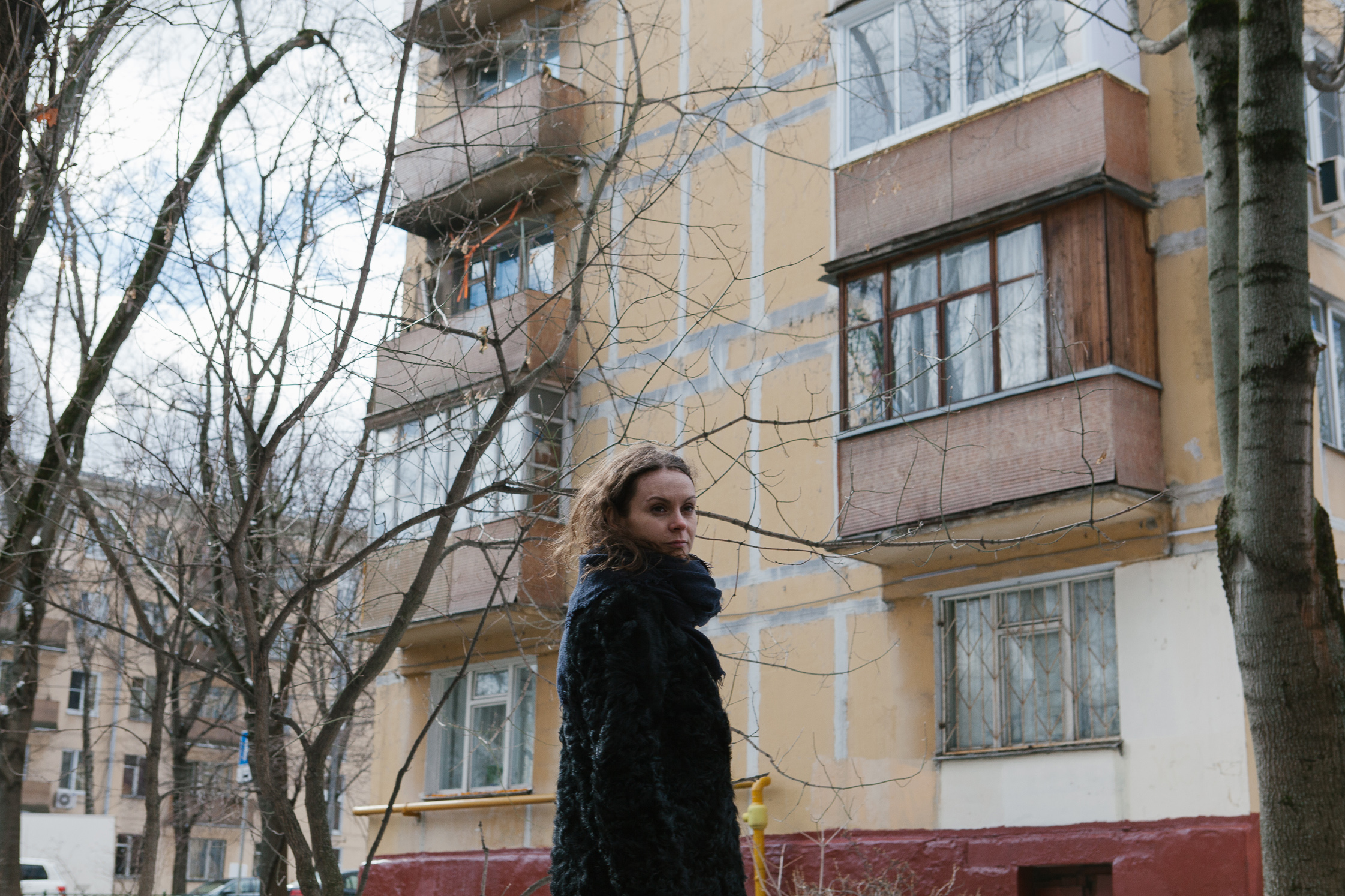

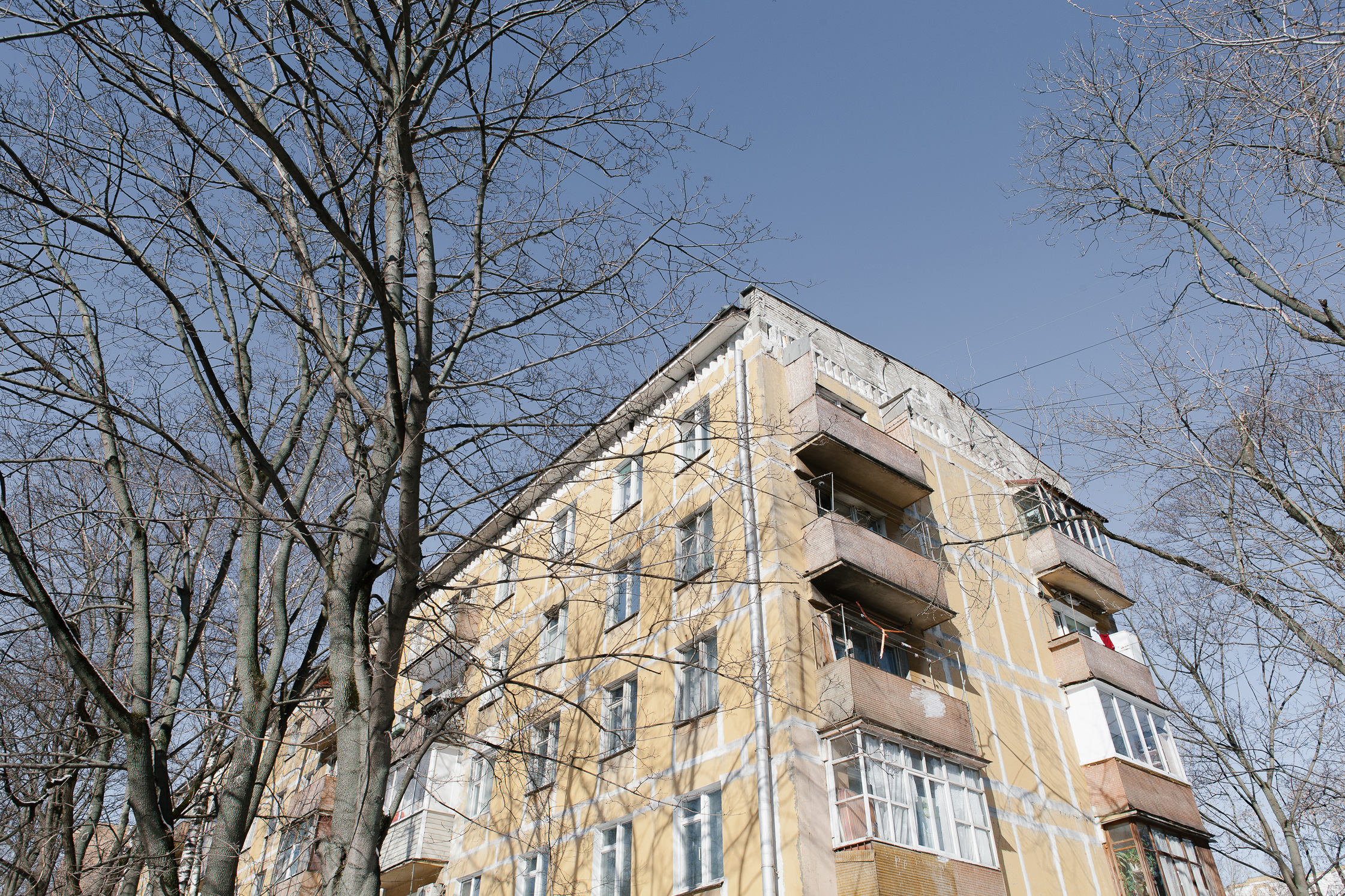
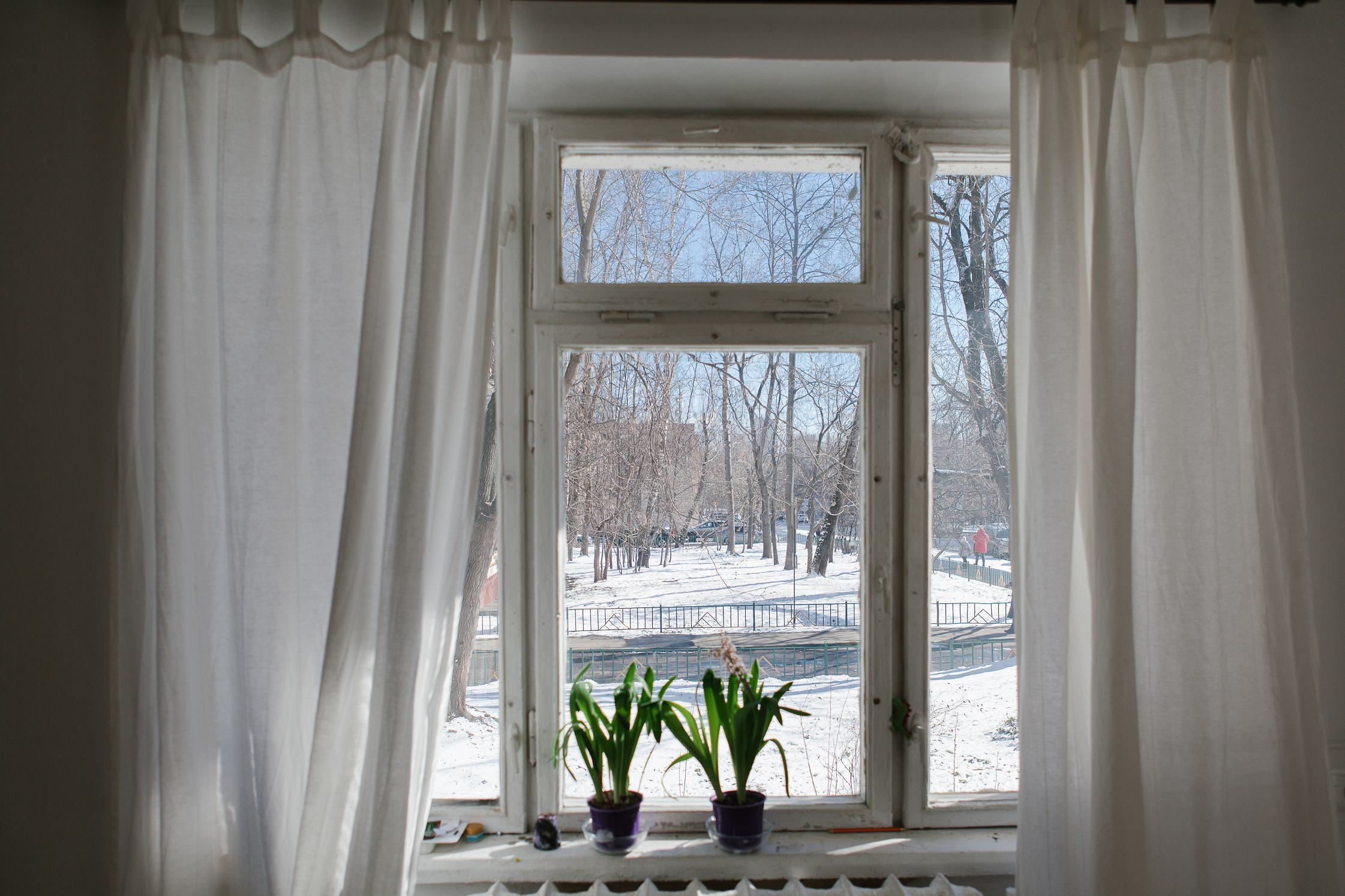
“But why do women need doulas when they have doctors and midwives? In Russia, the answer is very simple: the existing system just can’t guarantee a good delivery experience for every women.”
Doulas offer professional psychological help to women in labor and support them emotionally. Moreover, doulas often coach pregnant women and young mothers because they want to support them during the whole transformation. They don’t have the qualifications to provide medical help, suggest medication or affect a woman’s decision about the way she wants to give birth. However, in Russia, doulas have been given a bad name, namely because there are some uncertified and inexperienced people calling themselves ‘doulas’ who try to help doctors or even perform deliveries at home themselves—sometimes with bad consequences. Doulas aren’t midwives; unlike the latter, they aren’t health-care providers and they can only help in a non-medical capacity. And if we go further and compare midwives to obstetricians, the distinction is that the latter can perform pregnancy-related surgery, such as a caesarean section, or handle multiple births.
“I started as a clinical psychologist at the psychiatric hospital where I worked with autistic children.” At the time, Daria dreamed of becoming an art therapist, (and gained some experience in the field), but then her priorities changed. After working as a stylist for a few years, graduating from the faculty of psychology, and giving birth to her first child, Daria returned to studying psychology. At that time, some friends started to approach her and her friend Nadezhda Pavlovskaya (she is a psychologist, too) because they wanted to hear their advice. Young women wanted to hear from someone like Daria and Nadezhda who had experienced childbirth themselves. “You were there, among these strange circumstances; tell us what it is really like,” Daria’s first clients said. “When we look at you, we aren’t afraid to have children.”
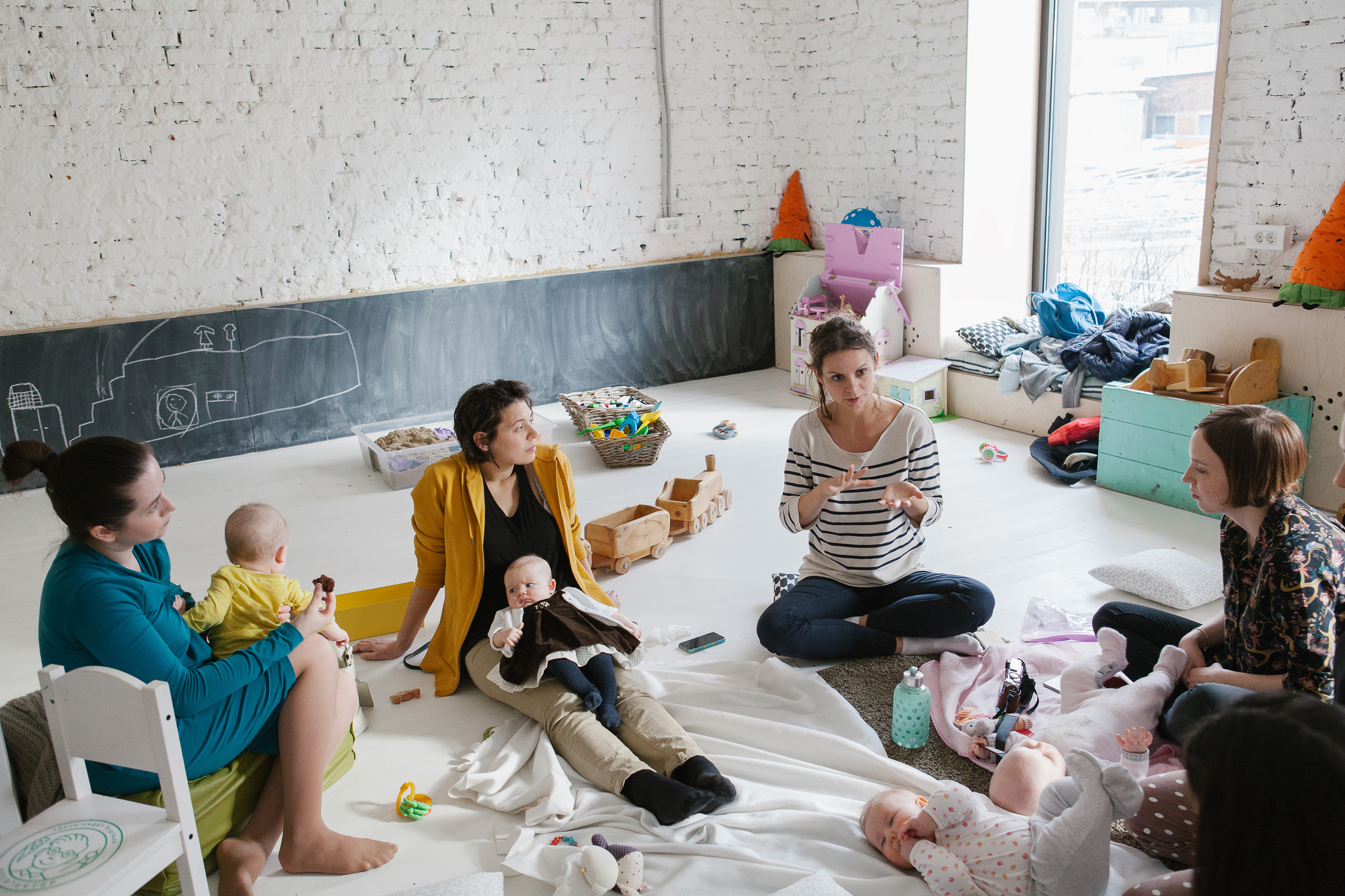
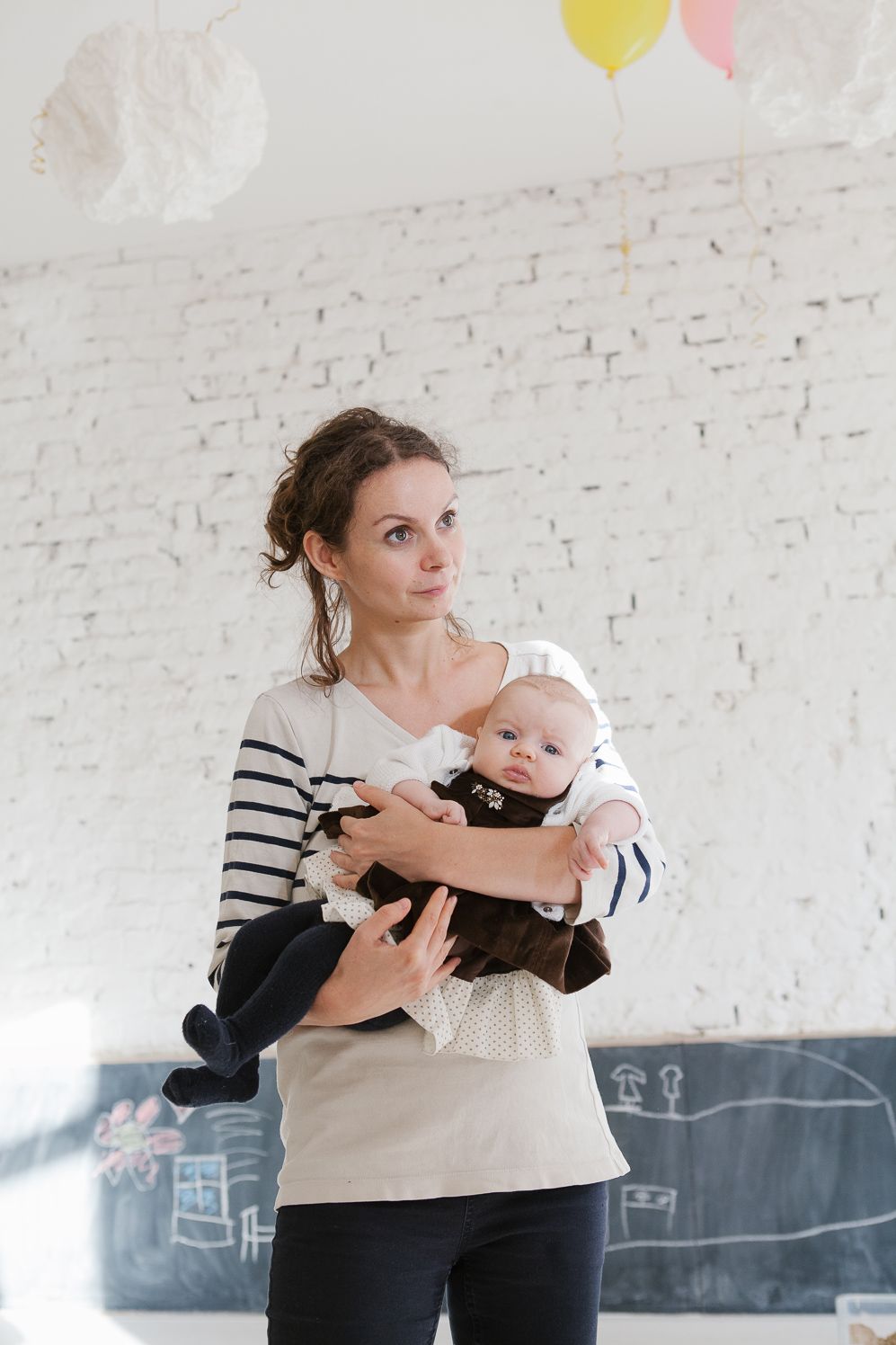
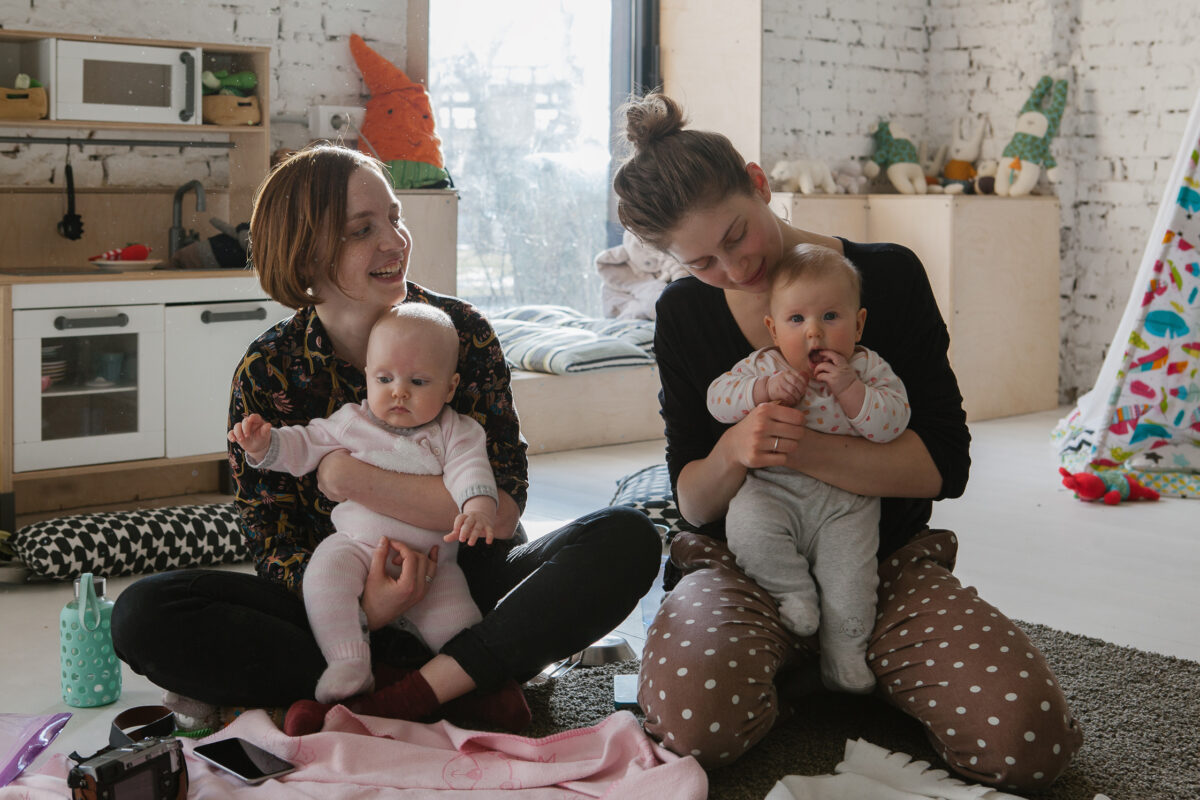
Together with Nadezhda, they started to consult pregnant women at home and soon Daria went to get an official training. She wanted to get a certificate from an American organization called Birthing From Within to become a trained specialist and teach pregnant women to prepare for childbirth. At school, she learned what doulas do. “Of course, I wanted to attend someone’s birth because I wanted to know what comes next after my classes,” says Daria. “But I didn’t think I could become a doula; it seemed like a sacred practice.” Her approach quickly changed when one of her clients asked Daria to assist her in labor.
Daria’s courage came from the teachers she met at the Birthing From Within school. The program is partly based on the works of an influential French obstetrician and childbirth specialist Michel Odent. Birthing From Within, an organization founded by an American former midwife Pam England (she also has a masters degree in psychology–counseling), sees “birth as a Rite of Passage” for women and believes it can take different forms. Thus, they don’t advocate for home birth or having a baby at the hospital. The approach is described in the book of the same name which was published in 1998. Now the organization is hosting workshops and retreats for birth-related professionals and also teaches pregnant women. Daria likes Birthing From Within’s methodology because its supporters understand that childbirth is transformative for both a new mother and their families and it’s important to help patients make this big transition and eliminate possible traumas.
But why do women need doulas when they have doctors and midwives? In Russia, the answer is very simple: the existing system just can’t guarantee a good delivery experience for every women. During Soviet times, the government tried to create a very efficient system for modern women who were considered equal to men and had to work as much as their male counterparts. Daria thinks that many details of this system were designed to separate a child from their mother because women were supposed to seek help in the collective. It was a communal duty to raise children. That’s why a lot of regulations appeared: a mother had to feed a baby in a special way, wash her breasts with soap, wear a special face mask while interacting with a baby, use sterile swaddlers, and, most importantly, trust “the experts” and after three months go to daycare so the society can care for the babies instead of their moms. These rules were often depicted in the visual propaganda.

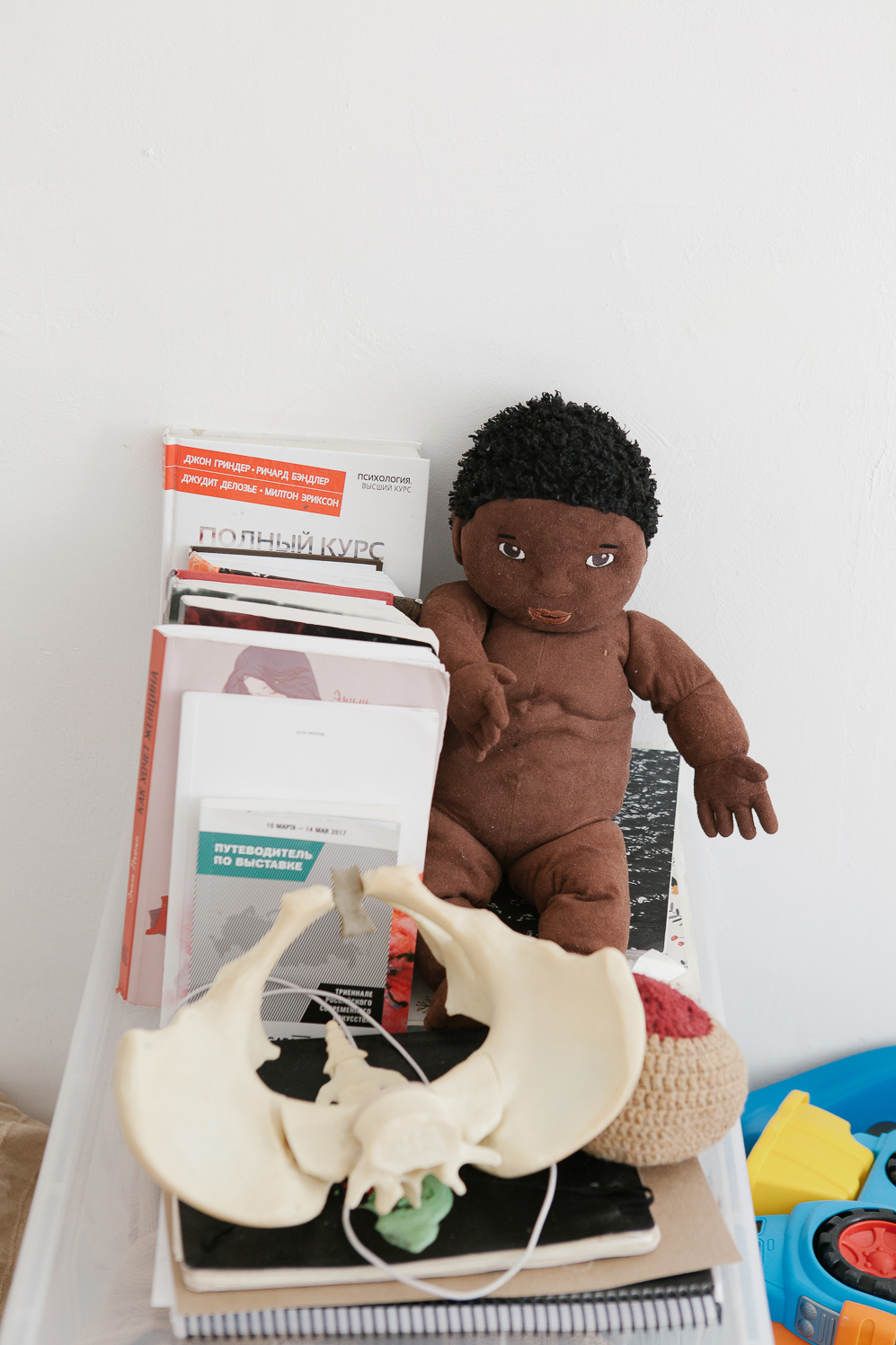

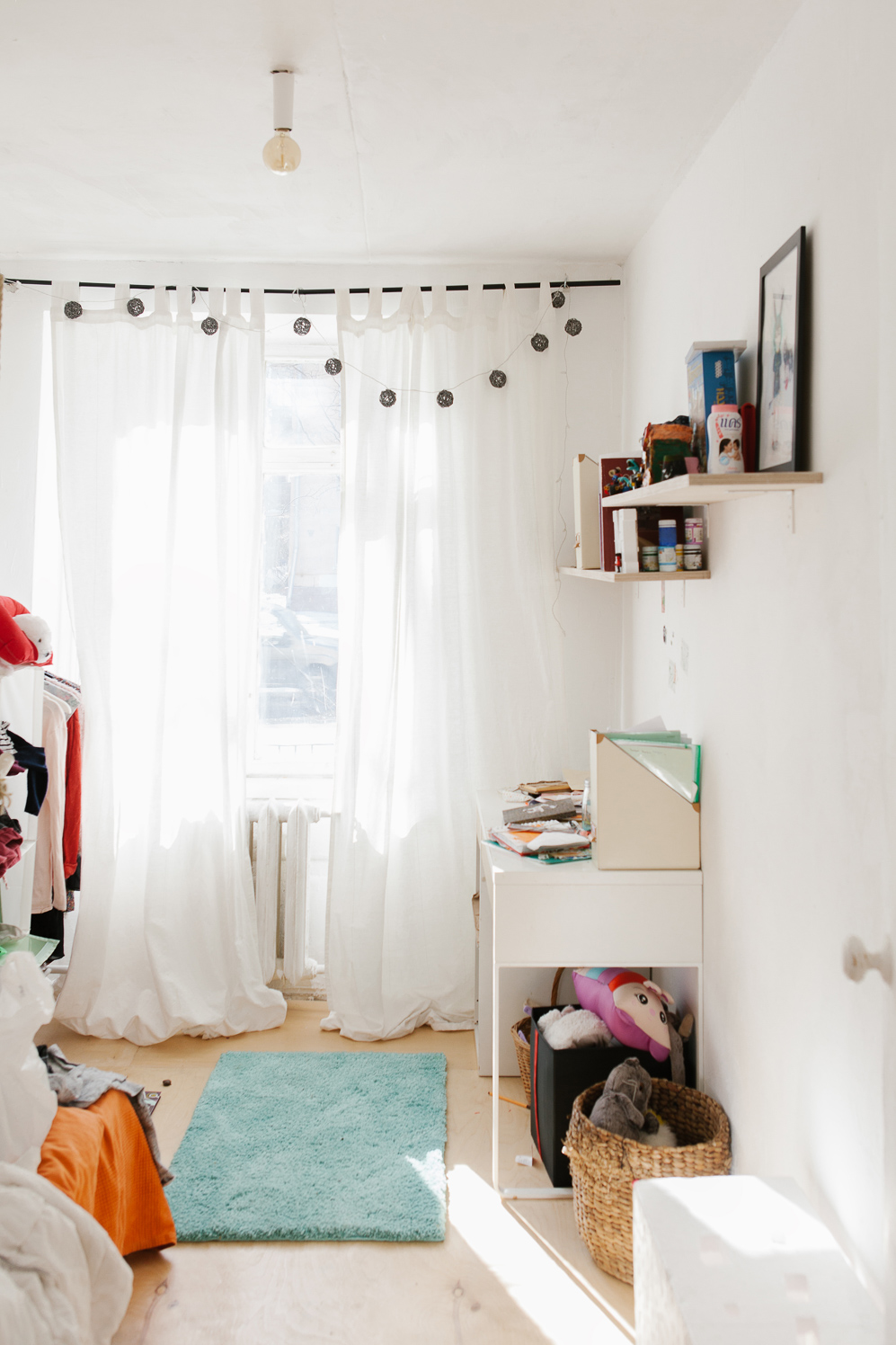

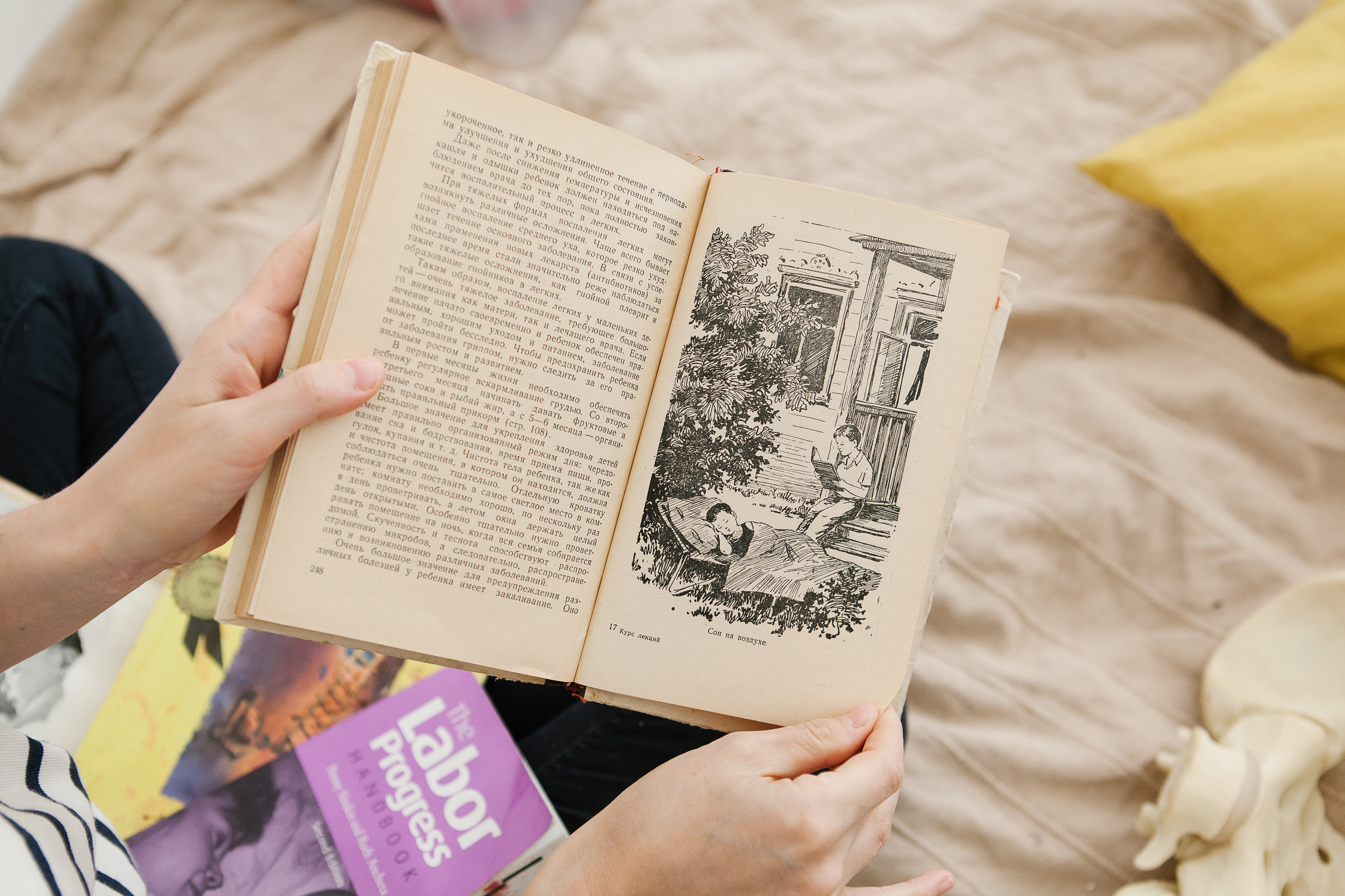
“Now the system is designed in a way that even if a doctor or a midwife is kind and helpful their work schedule doesn’t let them act that way.”
The goal of the new system was to give every woman an opportunity to give birth in the hospital. But until the ’60s, some women gave birth at home. “I have a Soviet book for pregnant women published in 1959, and there is a chapter dedicated to home birth,” Daria says. It meant that women were assisted by paramedics because often a hospital was too far from home. “The chapter also advises to ask a friend or a female neighbor to help with the delivery, so this person was, in fact, like a doula.” As the infrastructure grew, the state prohibited midwives to work outside of hospitals.
“When I’m driving home after a delivery, I often think what I would do if I were a minister of health care,” Daria says, half joking. “Now the system is designed in a way that even if a doctor or a midwife is kind and helpful their frenetic work schedule doesn’t let them act that way.” In Russia, every doctor has approximately 12 minutes for an appointment with a pregnant woman. Professionals who assist patients during childbirth are also extremely busy (every team of two to three midwives performs up to 20 deliveries a day), so they rush women in labor—they are too stressed to be mindful and take their time. Daria thinks this tight schedule is a reason why doctors are often rude and intimidate women so they obey the system.
Another problem Daria sees is hospitals’ policies; she hopes that one day, women can invite anyone they want to attend the birth. In Russia, it’s often prohibited to take someone with you to the delivery, even if it’s the woman’s husband. Many patients have to pay for this opportunity despite the fact that the law says that women can take their relatives to attend the birth for free. Under tight financial conditions, hospitals are encouraged to earn more, but at the same time, doulas can really help stressed doctors if they manage to build strong relationships.

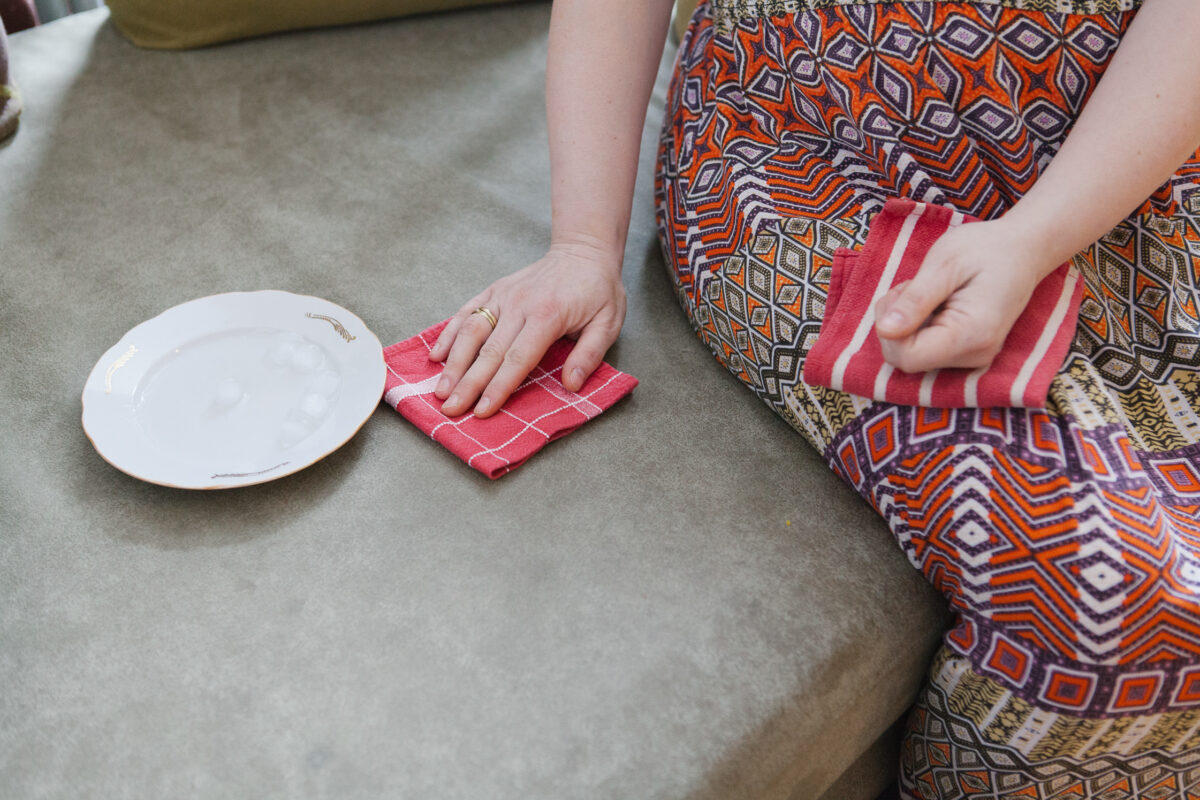

“You should handle uncertainty because parents or doctors can’t fully control motherhood.”
To create lasting change, Daria participates in many programs and initiatives. She was a part of the founding team of Association of Professional Doulas that unites more than 200 doulas from all parts of Russia. Now she wants to create an agency for doulas. “As an individual, I can help a limited number of women,” Daria laments. Her practice is rather small, but Daria knows that she can do more. When she worked in the fashion industry, she organized big photo shoots and events for several thousand people, so she wonders what can possibly happen if she applies her organizational skills to her new passion.
“A part of me is always saying “How dare you? You enjoy your work, but what about other people?” She imagines an educational program for both doctors and midwives that can help them enhance the existing system and modernize the hospitals by changing the doctor-led approach. Daria knows that even one passionate professional can change a lot. She is inspired by the story of Yekaterina Glok. This Russian doula invited Carol Gautschi, the famous American midwife, to a small town of Chernogorsk in The Republic of Khakassia where Carol trained doctors in one of the hospitals. Very soon their whole practice changed, and they opened a new labor ward with a home-like interior, and now it’s possible for doulas to attend births there. Some women even come from Krasnoyarsk, the neighboring city, so they can give birth in the renovated hospital.
Institutional changes are a big part of Daria’s mission, but her main goal is still helping women to find their inner peace and belief in themselves. She writes a lot, so her articles often help women who have never seen her. The bottom line of all her articles is the belief that “mother knows best.” It’s important for women to feel confident and trust their bodies because every successful childbirth is a mix of trust in your body and taking responsibility for things you can control. “You should handle uncertainty because parents or doctors can’t fully control motherhood.” In the 21st century, we should still trust the forces of life, our bodies and the people around us and the doula is the right person to teach women to understand this context.

Visit Daria’s page to learn more about her work. Interested to find out more? See Birthing From Within and Association of Professional Doulas. Thank you, Daria, for showing us around Moscow and giving us insight into the work you do to help pregnant women in the city.
This portrait is part of collaboration between Freunde von Freunden and Werde Magazine, founded on our shared appreciation for working creatively with nature. If you’d like to know more about our collaboration with Werde, you can see all of the stories so far here.
Production: FvF Productions
Text: Anna Savina
Photography: Natalia Pokrovskaya
